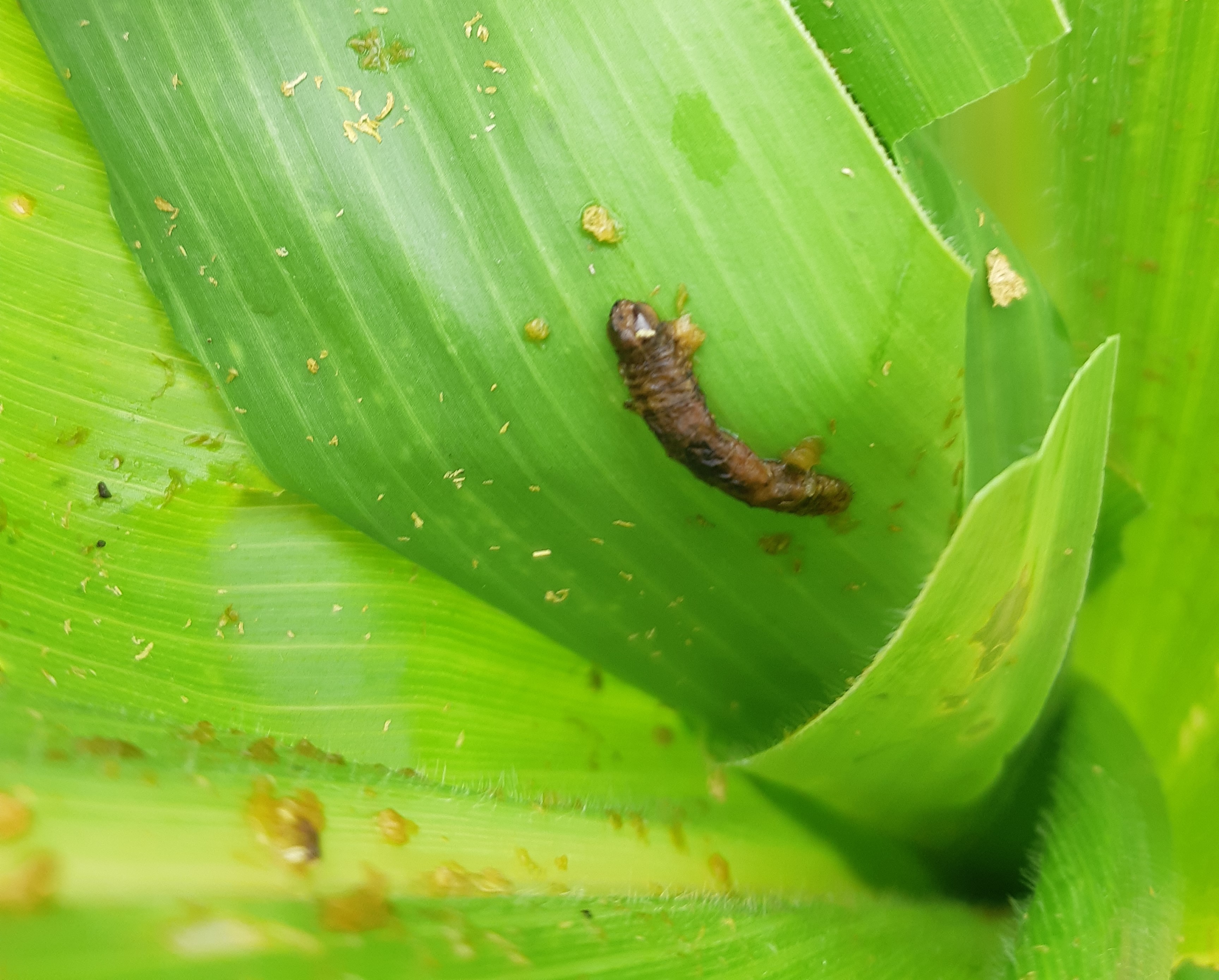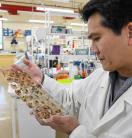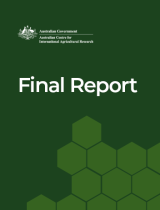Combating fall armyworm in Zambia

Rural farming communities in Zambia will benefit from new ACIAR-supported research helping to manage a devastating pest wiping out crops and impacting food security.
Fall armyworm (FAW) is an invasive, transboundary pest which has caused widespread crop destruction around the world. The insect pest has become one of the most damaging pests in Zambia, especially for maize crops – a staple food for over 300 million farmers in Africa.
Estimates of the damage caused by the pest annually of A$242 million in Zambia, with a yield loss of A$14.29 billion annually across Africa. With adult moths travelling up to 160 kilometres in a night, the species spread rapidly across Africa and Asia since its detection outside of America in 2016. FAW arrived in Australia in 2020.
FAW is largely managed using conventional pesticides. Pesticides are sometimes overused because of a lack of awareness of other available methods, or because they are the only option of pest control compatible with smallholder farming systems.
Excessive pesticide use has been linked to lower food quality, environmental degradation and poor health outcomes for farming community.
Led by the Centre for Agriculture and Bioscience International (CABI), the new ACIAR-supported research effort will work in close collaboration with the Zambian Agriculture Research Institute and the University of Zambia and seeks to explore alternative methods to combat the pest – in the form of biopesticides.
Biopesticides, not widely used for managing FAW, could provide a more environmentally friendly and sustainable approach.
ACIAR has previously funded research into FAW across the Indo-Pacific, through a CSIRO-delivered project, to understand the genetics of the pest, building greater understanding for the development of pesticides and other management practices.
Dr Eric Huttner, ACIAR Research Program Manager, Crops, said the aim of the project is to uncover tangible responses to the challenges that FAW presents.
‘There is a lot of work being done on fall armyworm, because of the many problems it creates for farmers, and the flow on effects for farming communities. The role of this project is to investigate two biological control agents – a virus and a fungus. Alongside demonstrating effectiveness, we will also be considering how production and distribution of the agents could be scaled,’ Said Dr Huttner.
The impacts of FAW in Zambia are significant because the pest targets maize. Any threat to maize increases southern African farmers’ vulnerability – and puts food security at risk.
Ms Léna Durocher-Granger, Project Leader at CABI, said that biopesticides have a low adoption rate because of a lack of awareness.
‘In many countries, not just Zambia, farmers are unfamiliar with biological control options. And if they are aware, they can have trouble accessing the agents,’ said Ms Durocher-Granger.
Working with farmers and farming communities in Zambia for over 5 years, Ms Durocher-Granger has found that farmers are keen to learn about biocontrol.
‘The pesticides that farmers have access to can be toxic or even banned. Coupled with a lack of access to proper protective equipment, farmers are concerned about health implications, for themselves and the environment,’ said Ms Durocher-Granger.
‘They are definitely interested in biopesticides, and given information and access, they are great at advocating for increased demand and use of these options.’
The 3-year project will have 4 main stages. Firstly, surveying farmers on their attitudes towards biocontrol agents, which will inform how the project interacts with farmers. Next, testing the field efficacy of the 2 agents (viral and fungal). Finally, training farmers on the application of the agents, and developing effective business models for the local production and distribution of the agents.
Dr Huttner and Ms Durocher-Granger agree that a crucial part of the project’s success is ensuring the biopesticides are fit for the local social and ecological context, initially in Zambia, but also East Africa and beyond.
‘The fungus we are working with for biocontrol of fall armywork comes from Zambia. It’s attacking fall armyworm effectively because it’s locally adapted – that means it’s a great option to harness and produce locally,’ explained, Ms Durocher-Granger.
With 5,000 farmers across 15 locations, the project aims to increase awareness at a large scale.
‘Funding from ACIAR and other partners is enabling us to engage at a larger level. And with more local partners coming on board, the amount of research and testing we can do means reaching more farmers and districts than we ever have before.’Ms Durocher-Granger, said.
For any pest management system to be effective, it needs to ‘be consistent with the labour availability of farmers,’ added Dr Huttner.
‘Anything that requires a lot of work will be more difficult to implement and be taken-up by farmers.’
That’s why learning about farmers, their habits and capacity is so important.
Collective pest management, which has been utilised to successfully manage highly mobile and invasive pests around the world (such as fruit fly in Australia), is something Ms Durocher-Granger would like to see as a result of this project.
‘When farmers come together to manage pests, that’s when you can really see results,’ said Ms Durocher-Granger.
While biocontrol is just one piece of the puzzle in responding to fall armyworm, the project is contributing to a global response. Outputs will add to a growing body of research on the effectiveness of biocontrol, local scaling in the African context, as well as considering the business model for producing and distributing fit-for-purpose bioagents.
The project is scheduled to run until mid-2026. Find out more on the ACIAR website.




